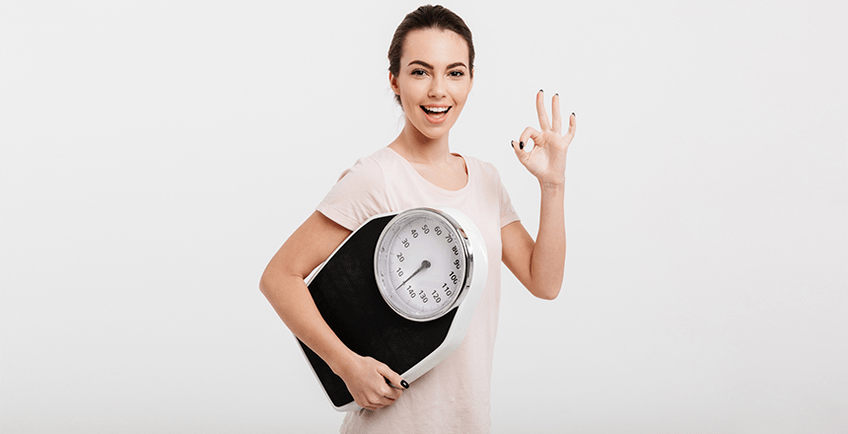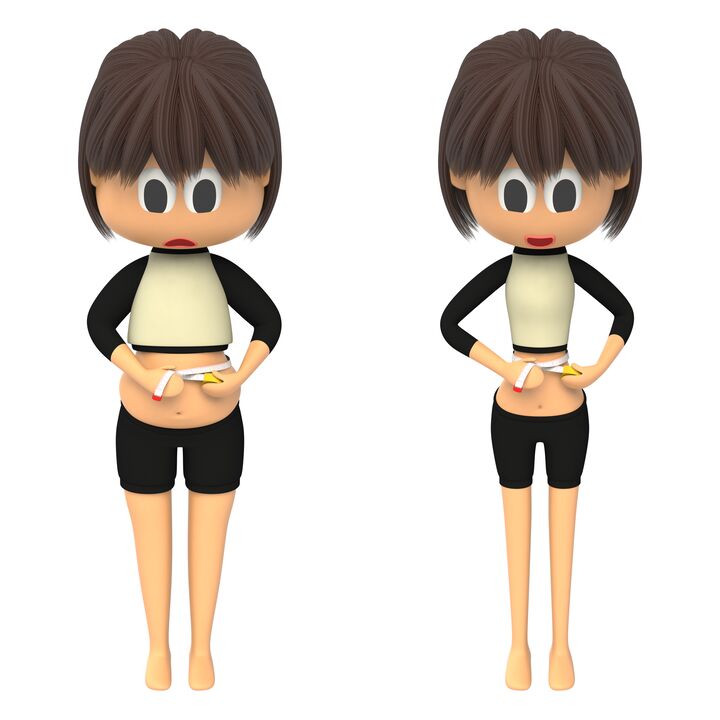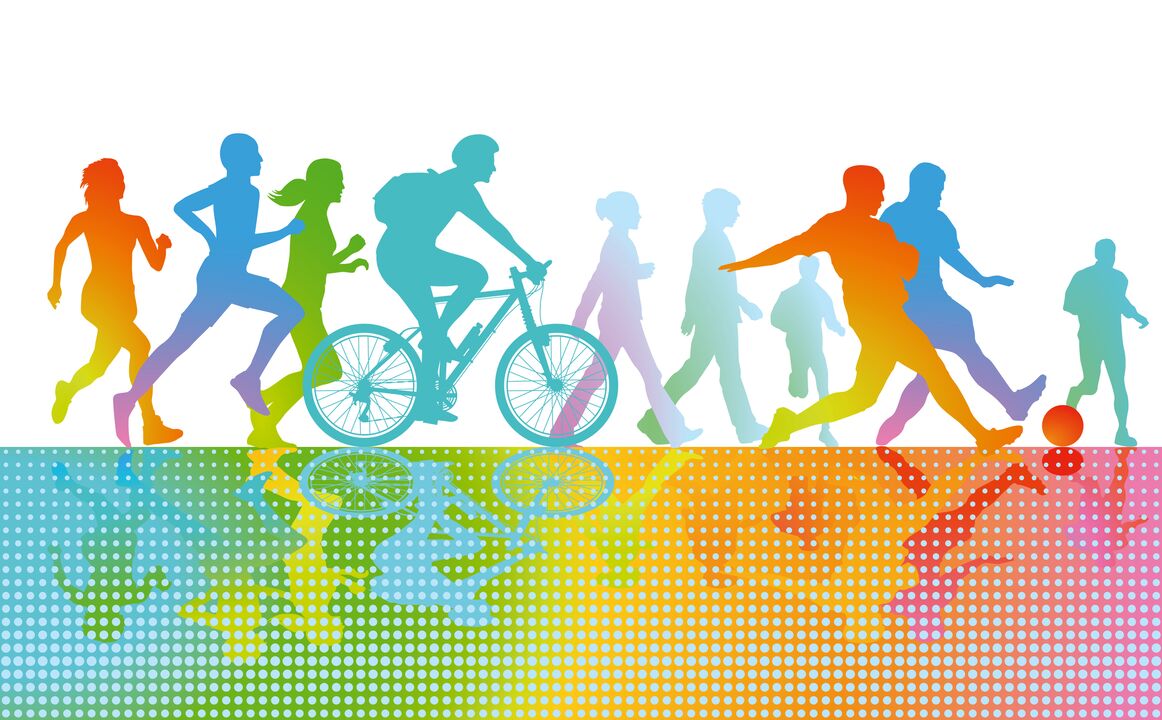
The aim of this article is to develop a correct understanding of the problem of overweight, to prioritize the solution of this problem and to determine the direction of movement towards weight loss. In short, to answer the questionHow to lose weight?»
Is it overweight?
Not everyone who has decided to fight the extra pounds is really superfluous. The subjective assessment of one's body is often not supported by objective evidence of overweight.
Often, in the pursuit of physical perfection, many achieve a certain image, and everything that separates from it is considered redundant, and in this case, the correction of the figure by loading certain parts of the body is sufficient. body.
That's why:
Step 1Calculation by anatomical and constitutional parameters and determination of your status by weight
To diagnose excess weight, use the body mass index (BMI) recommended by the World Health Organization:
BMI = Body weight (kg) / height (m²).
If, according to the calculation, you fall into the overweight category, then you should understand that by maintaining a normal lifestyle and diet in the future, you can already move on to the obesity group. Weight loss measures should be started immediately.
Step 2Motivation
The goal of losing weightessentially no different from any other purpose. It is a strategic conceptachieving the goal, as well asmaintaining the resultany path must begin with a precise definition of the purpose of that path.
First, we need to distinguish between the concepts of purpose and purpose. Weight loss is a task that needs to be solved, it answers the question: "what needs to be done? ". And the goal of losing weight should answer the question, "Why does it all have to start? "
In the case of weight loss, goals can be set with motivation. One must be aware of this, only then can one count on the tests of resistance and stress that always accompany everyone during the slimming period.

Everyone has their own motivation.
- Health. Being overweight is mainly a threat to health: various diseases of the cardiovascular system, respiratory and digestive systems, musculoskeletal system, disorders of the genitourinary system, skin damage, endocrine diseases.
- Expansion of physical abilities: easier to perform the usual daily physical activities (easier to climb stairs, do homework, just walk), the opportunity to engage in your favorite sports, outdoor activities, active tourism, etc. c.
- ANDfor other purposeswhich is a serious incentive for many:
- return to the usual wardrobe,
- clothing style,
- be on the trend of fashion trends,
- be proud of yourself and loved ones, etc.
Once the goal is defined, it needs to be nurtured on an ongoing basis so that in times of crisis, when the hands are down, and there is a temptation to stop halfway, it will play the role of an ambulance to revive the will to win.
Step 3. Finding the causes of overweight and eliminating them
It must be borne in mind immediately that this is the right thing to do under the guidance of a competent medical curator.
The main reason for the appearance of excess weight is that the energy absorbed by food exceeds its consumption and accumulates in fat cells (adipocytes). And this can be the result of several factors.
Malnutrition: both quantitatively and qualitatively
The main thing I would like to draw attention to is that a competent approach precludes rapid weight loss (more than 5 kg per month, optimally 2-3 kg per month).Requests to lose weight during the week are naive, and those who ask for it say that it is urgently needed. The long accumulation of excess pounds in the body makes you think about a long-term project to get rid of them safely.
You can often hear the argument in the following form:I ate little, but I still get better.
If the surplus has settled, it means that it came over with food.
The easiest and most effective way to adequately evaluate your usual diet is to keep a food diary for 2 weeks. It must reflect:
- meal time
- the amount and composition of meals eaten,
- the amount of free liquid consumed
- time and quantity of alcohol consumed.
Information about the conditions of food intake (after psychological stress, before and after physical activity) is also useful for further analysis and work on the development of proper eating habits.
The analysis of the nutrition diary and dietary adjustments should be performed by a nutritionist based on the calculation of a person's daily needs, as individual characteristics, physiological characteristics, household stress, car use, level are taken into account. physical sports activities, etc.
It is important to distribute the energy content of the diet correctly during the day: the meal with the most calories should fall during the day with maximum physical activity, when it can be fully consumed.
The most common dietary mistakes:
- lack of breakfast
- snacks while running
- dinner, which sometimes exceeds the daily physiological needs in terms of energy value.
General recommendations for proper nutrition for weight loss
- A caloric deficit of 500-700 kcal / day or approximately 30% of the total estimated caloric intake should be achieved.
The daily energy value must not decrease for women - below 1200 kcal, for men - below 1500 kcal.
Reducing your daily calorie intake below these figures is unsafe and pointless in the long run, as the weight you lose quickly changes your metabolism so that your body starts to save itself after the dietary tests have ended. restore lost.
- Meals should be frequent (every 2, 5-3 hours) in small portions, if possible. The last meal should preferably be taken no later than 19: 00 or, alternatively, no later than 3 hours before bedtime.

Eat slowly, chewing thoroughly. In this case, the nutrients in the food have time to "give a signal" to the saturation center. When eating in a hurry, the satiety signal is received too late when the stomach is full, i. i. the person has already moved.
Japanese and other Asian cuisines that use chopsticks are very indicative in this regard.
First, it is part of their life philosophy, where eating is almost a ritual that affects health and longevity.
Second, sticks do not allow you to take a large portion, but as much as a person can chew properly.
In addition, it increases the time of the meal, and the body receives a satiety signal just in time - as a result, the feeling of satiety appears after a much smaller portion eaten than with a fast meal.
- Promotes weight loss and increased water intake- It is recommended to drink 500 ml of water before each main meal.
- To exclude unnecessary appetite stimulation and digestive function, the diet should not contain stimulating foods:strong broths, pickles, pickles, fried spices, alcohol.
- Particular attention should be paid to the exclusion of alcoholic beverages., which in themselves are high - calorie foods: the energy value per 100 g of alcohol is 700 kcal, which is approximately equal to the energy value per 100 g of butter.
Physical inactivity (sedentary lifestyle)

Physical activity is an important component in achieving the desired energy balance both during the weight loss period and maintaining weight after achieving the result.
Weight loss exercises should be:
- dosed;
- build up gradually
- may be moderate (performed for 1 hour without fatigue);
- may be intense (fatigue occurs after 30 minutes of training).
Weight loss program recommends: 4-5 hours per week of moderate-intensity physical activity or 2, 5-3 hours per week of intense physical activity. Energy consumption at such loads is 2000-2500 kcal.
- Walk every day for 30 minutes. One of the best types of weight loss activities is interval walking - 2-3 minutes. at the usual rate, then 2-3 minutes. acceleration, then reduce the tempo and return to normal tempo (2-3 minutes). Or run for 15 minutes.
- Sports games 45 min. (volleyball, basketball, football, etc. )
- Five times a week for 1-1, 5 hours - swimming, shaping, aerobics, tennis, etc. c.
- Exercises in the gym with weights for building muscle mass.
It is better to change different types of physical activity.
The most effective way to lose weight is to lose fat during exercise before breakfast. For day and evening workouts, it is recommended to eat no later than 3 hours before them.
Endocrine disorder
Hormonal disordersis the cause of overweight5-10%cases. If the traditional comprehensive weight loss program (healthy diet, physical activity) does not have a positive effect, an endocrinologist should be consulted.
The doctor will draw a conclusion based on the test data and results.laboratory research, which will provide information on the function of endocrine organs (thyroid, adrenal glands, gonads, endocrine part of the pancreas).
Based on the information received, the endocrinologist will be able to draw up a plan of therapeutic and preventive measures.
What is important to remember when starting to lose weight
- There is no warrior in the field. Professional support is needed (nutritionist, physiotherapist, endocrinologist, psychologist) and close people. Together you are a force.
- All your efforts, efforts will not go unnoticed, the result will be sure.
- It is always worth remembering your purpose and the motives that will lead to it.
- Don't relax when you get the result you want. Don't be put off by new eating and active living habits - extra pounds are always awake.














































































